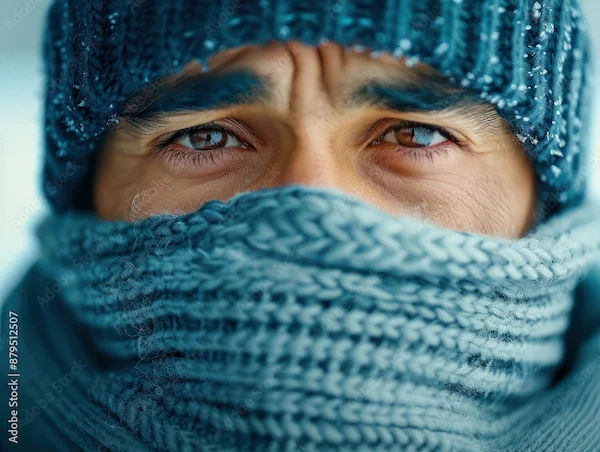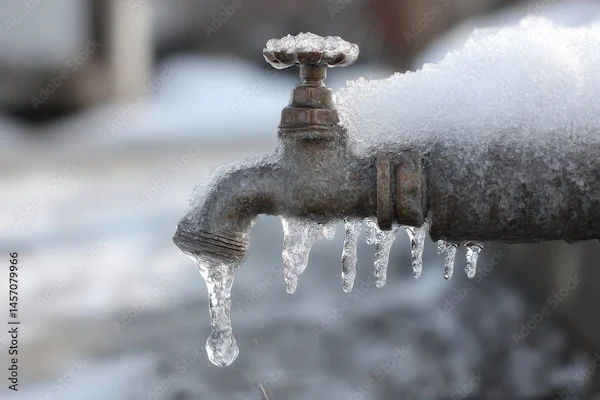Elderly Winter Care Tips: Stay Warm, Safe & Healthy
Discover essential winter care tips for seniors, including health precautions, nutrition, home safety, and exercise. Stay warm, prevent illnesses, and enjoy a safe winter.

Written by Dr.Sonia Bhatt
Last updated on 3rd Jul, 2025

Introduction
Winter can be particularly challenging for older family members. Cold temperatures, reduced mobility, and weaker immunity increase their risk of illnesses, joint pain, and falls. Without proper care, the elders in your family may face serious health issues like hypothermia, flu, and respiratory infections.
As people age, their ability to regulate body temperature weakens, making them more vulnerable to the cold. Icy surfaces increase fall risks, especially for those with weak bones. Cold weather also worsens joint pain and stiffness, while respiratory illnesses like pneumonia and flu can become more severe.
To keep your elderly loved ones safe and comfortable, ensure they dress warmly, eat a nutritious diet, and stay in a properly heated home. Encourage them to stay active and boost their immunity with healthy foods and adequate hydration. Small changes can significantly improve their well-being during winter.
By knowing these risks and taking proactive steps, you can protect your elderly family members from winter-related health issues and help them stay safe and healthy.
Understanding the Health Risks in Winter
Cold weather poses significant health risks for seniors, as their bodies struggle to regulate temperature effectively. The combination of lower immunity, reduced mobility, and exposure to cold increases the risk of seasonal illnesses and worsens existing health conditions. Taking preventive measures can help older adults stay healthy throughout winter.
1. Common Winter Illnesses in Seniors
Older adults are more susceptible to seasonal illnesses such as:
Flu and pneumonia, which can lead to severe respiratory complications
Common colds that weaken the immune system
Bronchitis, causing persistent coughing and breathing difficulties
Norovirus, a winter virus leading to nausea and diarrhoea
Vaccinations, good hygiene, and a strong immune system can help reduce the chances of developing these illnesses.
2. Impact of Cold Weather on Chronic Conditions
Cold temperatures can worsen existing health conditions in your elderly family members seniors, such as:
Arthritis, increasing joint stiffness and pain
Cardiovascular diseases, as cold weather strains the heart
Asthma and other respiratory conditions, aggravated by dry air
Diabetes, due to changes in circulation and insulin sensitivity
Proper winter care, including warmth, hydration, and regular medical check-ups, can help manage these conditions effectively.
Preparing the Home for Winter
A well-prepared home can protect seniors from winter-related health risks. Keeping indoor spaces warm and safe reduces the risk of cold-related illnesses and accidents.
1. Ensuring a Warm and Safe Environment
Older adults should maintain a comfortable indoor temperature to avoid hypothermia. Key safety measures include:
Keeping the home temperature at a minimum of 18°C (64°F)
Using blankets, thermal clothing, and heated bedding
Avoiding slippery floors by using non-slip rugs and handrails
Ensuring adequate lighting to prevent falls
A warm and hazard-free environment helps seniors stay safe during winter.
2. Tips for Home Insulation and Heating Safety
Proper insulation and heating prevent heat loss and reduce energy costs. Seniors can stay warm by:
Sealing windows and doors to block cold air
Using draft stoppers to prevent heat loss
Ensuring heaters are placed away from flammable materials
Regularly servicing boilers and heating systems for safety
These precautions ensure a cosy and safe home during winter.
Nutrition and Hydration
Eating a balanced diet and staying hydrated are essential for maintaining health in winter. Proper nutrition helps strengthen immunity and keeps seniors warm from the inside out.
1. Essential Nutrients for the Elderly in Winter
Winter nutrition should focus on foods that boost immunity and energy, such as:
Vitamin C-rich foods like oranges and bell peppers to prevent infections
Omega-3 fatty acids from fish and nuts to support heart health
Iron-rich foods like leafy greens and lentils to combat fatigue
Warm soups and stews for easy digestion and comfort
A nutrient-rich diet keeps seniors strong and resilient against winter illnesses.
2. Importance of Staying Hydrated
Dehydration is common in winter due to reduced thirst, yet proper hydration is crucial for overall health. Seniors should:
Drink herbal teas and warm water to maintain hydration
Consume hydrating foods like fruits and broths
Avoid excessive caffeine and alcohol, which can dehydrate the body
Use a humidifier to prevent dryness and maintain moisture levels
Staying hydrated helps keep energy levels stable and supports the immune system.
Winter Clothing and Layering
Dressing appropriately in winter is essential for seniors to maintain body warmth and prevent cold-related illnesses. Wearing the right clothing can help regulate body temperature and reduce the risk of hypothermia.
1. Choosing Appropriate Winter Garments
Seniors should prioritise warm, breathable, and comfortable clothing to stay protected in cold weather. Key considerations include:
Wool or fleece-lined coats for insulation
Thermal socks and gloves to protect extremities
Hats and scarves to retain body heat
Waterproof and non-slip boots for walking safely on icy surfaces
Wearing properly insulated garments reduces exposure to extreme cold and ensures comfort.
2. The Benefits of Layering Clothes
Layering clothing traps body heat while allowing flexibility in adjusting warmth. The ideal layering method includes:
A moisture-wicking base layer to keep skin dry
A middle layer of wool or fleece for insulation
A waterproof and windproof outer layer to protect against cold air and rain
Dressing in layers helps regulate body temperature effectively while providing ease of movement.
Safe Winter Exercise
Staying physically active during winter helps maintain mobility, improve circulation, and strengthen immunity. Seniors should choose safe exercise routines to avoid injuries while staying warm.
1. Indoor Exercise Routines for Seniors
When outdoor conditions are too harsh, indoor exercises provide a safe way to stay active. Some effective options include:
Light stretching and chair yoga to improve flexibility
Strength training with resistance bands to maintain muscle strength
Walking indoors, such as in shopping malls, to keep the body moving
Gentle aerobics or dance workouts to enhance cardiovascular health
These low-impact exercises help seniors stay fit without exposure to harsh winter conditions.
2. Outdoor Exercise Safety Tips
For seniors who prefer outdoor activities, taking precautions is necessary to prevent cold-related risks. Important safety measures include:
Wearing layered clothing and insulated footwear to stay warm
Choosing safe, well-lit paths to avoid icy surfaces
Using walking aids, such as canes with rubber tips, for stability
Limiting outdoor activities during extreme cold or windy days
Being mindful of outdoor conditions ensures that seniors can exercise safely without the risk of falls or hypothermia.
Preventing Winter Accidents
Slippery roads and icy conditions increase the risk of falls and injuries among seniors. Taking precautions can help prevent winter-related accidents.
1. Avoiding Falls in Icy Conditions
Falls are a leading cause of injuries among the elderly, making it essential to take preventive measures, such as:
Wearing non-slip shoes with good traction
Walking slowly and taking smaller steps on icy or snowy surfaces
Using handrails and support when going up or down stairs
Keeping walkways clear of ice by using salt or sand
Avoiding unnecessary outdoor trips during severe weather also reduces the chances of falling.
2. Safety Tips for Walking and Driving in Snow
For seniors who need to walk or drive during winter, the following precautions can improve safety:
Wearing bright or reflective clothing for visibility
Carrying a mobile phone in case of emergencies
Ensuring the car is equipped with winter tyres and a full fuel tank
Avoiding driving in severe winter storms or icy conditions
Taking these precautions can help prevent injuries and ensure safer mobility during winter.
Managing Emotional Well-being
Winter can be isolating for elderly individuals, leading to emotional distress and seasonal mood changes. Reduced daylight hours, limited outdoor activities, and cold temperatures may contribute to Seasonal Affective Disorder (SAD) or general feelings of loneliness. Prioritising mental well-being is just as important as physical health during winter.
1. Combating Seasonal Affective Disorder
SAD is a form of depression triggered by shorter daylight hours and colder weather. Seniors experiencing symptoms like low energy, disrupted sleep patterns, or loss of interest in activities should adopt strategies to improve their mental well-being. Exposure to natural sunlight or light therapy lamps can help regulate mood. Engaging in hobbies such as reading, knitting, or listening to music also provides a sense of purpose. Maintaining a consistent routine and ensuring adequate rest are essential in managing seasonal mood changes.
2. Engaging in Social Activities to Beat Winter Blues
Social interaction is crucial in preventing feelings of loneliness during winter. Seniors should stay connected with friends and family through phone calls, video chats, or community events. Participating in indoor social activities, such as book clubs, group exercises, or crafting sessions, encourages a sense of belonging. For those who prefer the outdoors, short walks in safe, well-lit areas can improve mood and overall well-being. Regular interaction with loved ones helps prevent isolation and promotes emotional resilience.
Monitoring Health Conditions and Medications
Winter poses additional health risks for seniors, making it important to keep track of existing medical conditions and maintain a consistent medication schedule. Proper monitoring ensures that chronic illnesses remain under control and that seasonal illnesses are prevented.
1. Regular Health Check-ups and Vaccinations
Routine medical visits and timely vaccinations help seniors manage chronic conditions and prevent seasonal illnesses.
Seniors should schedule routine health check-ups to monitor chronic conditions such as diabetes, heart disease, and arthritis.
Vaccinations, including the flu jab, pneumonia vaccine, and COVID-19 boosters, provide essential protection against severe respiratory infections.
Regular screenings help detect potential health risks early, preventing complications.
2. Managing Medication Schedules in Winter
Proper medication management is essential in winter to control health conditions and prevent complications caused by cold weather.
Cold weather can worsen conditions like high blood pressure and joint pain, making medication adherence crucial.
Seniors should keep medications stored properly, as extreme temperatures can affect potency.
Using pill organisers and setting reminders can help maintain a consistent schedule.
Consulting a doctor for adjustments in dosage or additional supplements may be necessary during winter.
Maintaining proper medication schedules and attending routine health appointments ensures a smooth and healthy winter season for seniors.
Conclusion
Winter care for seniors involves staying warm, eating nutrient-rich foods, staying hydrated, exercising safely, and maintaining social connections. Proper clothing, home heating, and fall prevention measures play a crucial role in avoiding seasonal health risks. Regular health check-ups and vaccinations further help in preventing complications.
Caring for seniors during winter extends beyond physical health—it also involves mental and emotional well-being. Encouraging social interaction, ensuring timely medical care, and supporting a positive mindset help seniors enjoy a comfortable and fulfilling winter season. By following these essential winter care tips, older adults can maintain their health, independence, and quality of life throughout the colder months.
Consult Top Geriatricians
Consult Top Geriatricians

Dr. Sayali Damle
Geriatrician
11 Years • MBBS, MD Geriatric Medicine
Mumbai
Apollo Hospitals CBD Belapur, Mumbai

Dr. Priyanka Rana Patgiri
Geriatrician
7 Years • M.B.B.S., M.D. Geriatrics
Chennai
Apollo Hospitals Greams Road, Chennai
Dr. Sasikamalam
General Practitioner
1 Years • MBBS
COIMBATORE
Apollo Sugar Clinic Coimbatore, COIMBATORE

Dr Abilash Jain
General Physician/ Internal Medicine Specialist
12 Years • MBBS,DNB(FM),MNAMS,FIAMS,CCGMG(GERIATRICS),DGM (GERIATRICS),PGCD(DIABETES,BOSTON UNIVERSITY),FID(DIABETICS UK)CCEPC(PALLIATIVE CARE),CCCC(CRITICAL CARE)
Visakhapatnam
Apollo Clinic Vizag, Visakhapatnam
Dr. Shamim Anjum
Family Physician
15 Years • MBBS, M MED (Family Medicine)
Hyderabad
FAMILY CARE CLINIC, Hyderabad




